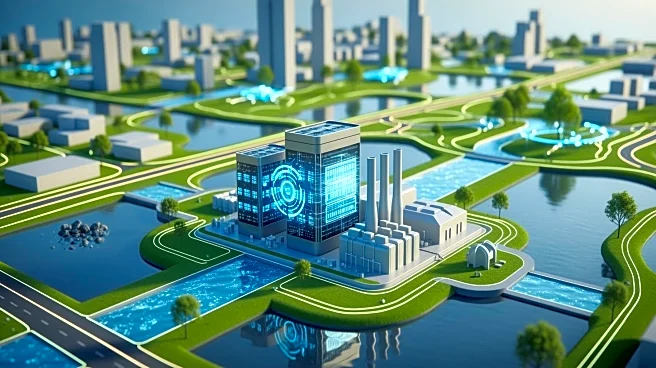What's Happening?
During the Bentley Year In Infrastructure event in Amsterdam, industry experts discussed the challenges faced by water utilities in digitizing their operations. Aging infrastructure and financial constraints are major hurdles, compounded by rising operational
costs and dwindling human resources. Cloe Meyer from Bluefield Research emphasized the difficulty in recruiting and retaining skilled personnel, which affects technical capacity. Nuno Medeiros from EPAL highlighted the integration of advanced systems like SCADA and GIS, which require significant technical expertise. The mismatch in timelines between data centers and utilities was noted as a barrier to collaboration, with Rod Naylor from GHD pointing out the slow pace of the water industry compared to the rapid changes in the tech sector. Ben Townsend from Google discussed the lack of data in utilities, which hampers decisions on data center siting, and the investments tech companies are making in water infrastructure improvements.
Why It's Important?
The discussion underscores the critical role of water resources in supporting the growth of data centers and industrial users. As tech companies like Google and Amazon seek to expand their operations, they face challenges in ensuring a reliable water supply. This has led to investments in leak detection and rainwater harvesting to mitigate water stress. The collaboration between tech companies and utilities is essential for economic growth and job creation, but it requires overcoming technical and political hurdles. The focus on water reclamation and reuse highlights the need for sustainable solutions to support industrial expansion without compromising community water needs.
What's Next?
Future steps involve enhancing collaboration between tech companies and utilities to address water resource challenges. Investments in infrastructure upgrades and sustainable water management practices are expected to continue. Utilities may explore advanced technologies for water reclamation and reuse, while tech companies could increase their involvement in community water projects. The ongoing dialogue between stakeholders aims to align timelines and resources to support mutual goals of economic development and environmental sustainability.
Beyond the Headlines
The ethical and political dimensions of water resource management are significant, as decisions impact local communities and environmental sustainability. The push for data centers brings economic benefits but also raises concerns about long-term water availability. Balancing industrial growth with community needs requires careful planning and transparent communication among stakeholders. The integration of advanced technologies in water management presents opportunities for innovation but also challenges in terms of technical expertise and resource allocation.
















